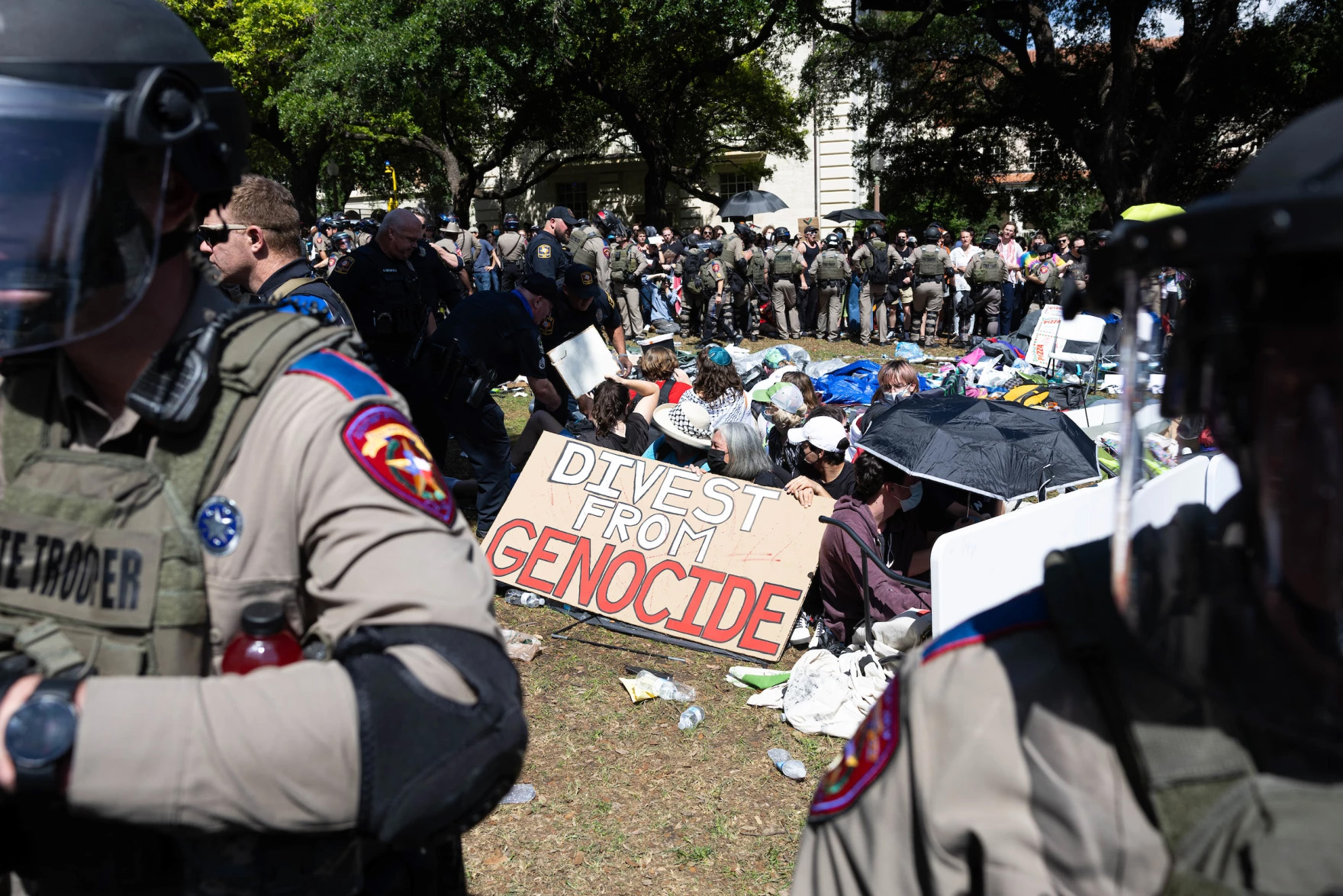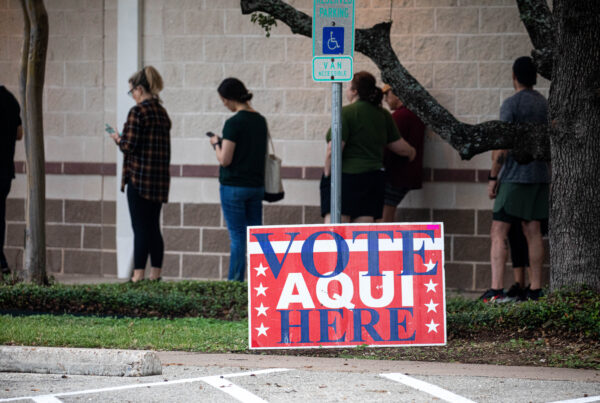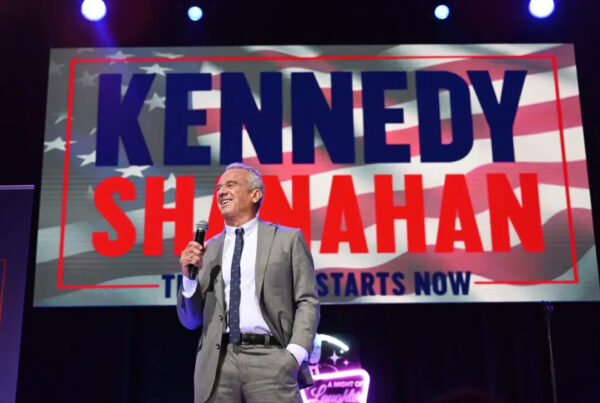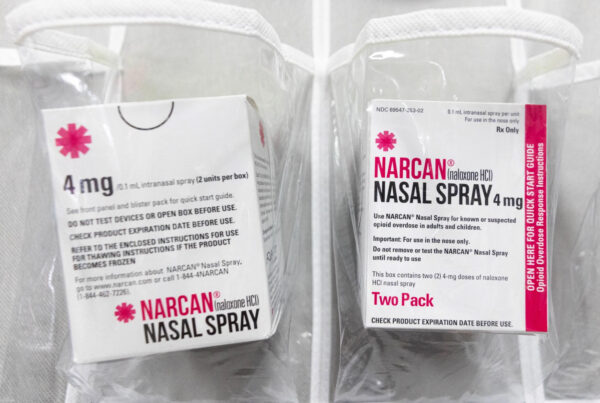From The Texas Newsroom:
When Jumana Fakhreddine took part in last week’s anti-war protests at the University of Texas at Austin, she said organizers had set up a peaceful teach-in with speakers and pizza. Their purpose was to pressure the university’s leadership to divest in entities tied to the Israeli war effort in Gaza, she said.
But the moment instead devolved into chaos where dozens of students were arrested by riot-gear clad state and local police officers who used force to quell the demonstration and stop students from venting their frustrations.
“The whole reason we were there was just to simply ask for divestment and to stop supporting the ethnic cleansing and genocide of Palestinians,” Fakhreddine, a 21-year-old biology and pre-med student, said. “I think that we just all want the occupation to stop.”
The ongoing protests at UT Austin come in response to the Israeli-led effort against Hamas after the Oct. 7 attack that left more than 1,200 Israelis dead and dozens held captive. Since then, the Gaza Ministry of Health reports more than 34,000 Palestinians have been killed in the Israel-Hamas war.
What is divestment?
These protests aren’t confined to the UT Austin campus. Similar demonstrations have erupted on other public and private campuses across the state and the country. While reports and photos of a heavy-handed police response to the protests have dominated headlines, some students say the message about divestment hasn’t resonated as much as it should.
So what exactly is divestment, and why are protesters calling for it? It all starts with university endowments – basically, donated money and assets that are invested to generate income.
Caleb Silver, the editor-in-chief of Investopedia, told the Texas Newsroom that the UT System has one of the largest endowments in the world. As of the 2023 fiscal year, it was worth about $44.9 billion.
Silver said “divestment” is a broad term, but in terms of what protesters are demanding, it includes three key elements.
“What you see through these protests is students … asking for the university and their endowments to stop investing in companies that either do business directly with Israel, or do business with companies in Israel, or that invest in companies that are domiciled in Israel,” he said. “So, it’s a broad request for the UT [System] endowment or some of these campuses.”
Last Wednesday’s protest at UT Austin was organized by the Palestine Solidarity Committee in Austin, a student organization, and specifically “called for a cease-fire in Gaza and for UT to divest from weapons manufacturers that provide supplies to Israel,” reported KUT.
Some students have also said they don’t want their tuition to go toward funding what they call a genocide of Palestinians. While the UT system does not put tuition funds into its endowment, Silver noted some other university endowments are partially funded by tuition.
“Endowments, generally speaking, are built from tuition payments made by students. They’re also made from gifts from former students and alumni who are influential people connected to the university,” he said. “So oftentimes you will see wealthy donors giving millions – if not billions – of dollars to a university’s endowment.”

















